
Carson Bigbee: The Pirate of America's Pastime(2023)
In the whirlwind of early 20th Century America, Carson Bigbee's rise from rural Oregon to World Series hero with the Pittsburgh Pirates embodies the ambition, resilience, and transformation of a nation on the brink of modernity.
In a time when America was on the brink of modernization, Carson "Skeeter" Bigbee emerged from rural Oregon to become an embodiment of national transformation. Born to working parents in 1895, Bigbee’s life as a multi-sport athlete, a baseball star with the Pittsburgh Pirates, a World War I enlistee, and a World Series hero, intersected with America's Progressive Era, the electrification of society, the First World War, and the onset of the Great Depression. His story, from hitting the decisive run in the 1925 World Series to managing in the American Girls Professional Baseball League, is a poignant reflection of ambition, patriotism, and the resilient spirit of an ever-changing nation in the early 20th Century.
Movie: Carson Bigbee: The Pirate of America's Pastime
Top 2 Billed Cast
Rachel Elevenlabs
Charles Postel
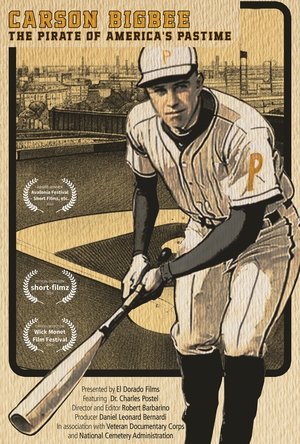
Carson Bigbee: The Pirate of America's Pastime
HomePage
Overview
In a time when America was on the brink of modernization, Carson "Skeeter" Bigbee emerged from rural Oregon to become an embodiment of national transformation. Born to working parents in 1895, Bigbee’s life as a multi-sport athlete, a baseball star with the Pittsburgh Pirates, a World War I enlistee, and a World Series hero, intersected with America's Progressive Era, the electrification of society, the First World War, and the onset of the Great Depression. His story, from hitting the decisive run in the 1925 World Series to managing in the American Girls Professional Baseball League, is a poignant reflection of ambition, patriotism, and the resilient spirit of an ever-changing nation in the early 20th Century.
Release Date
2023-10-01
Average
0
Rating:
0.0 startsTagline
In the whirlwind of early 20th Century America, Carson Bigbee's rise from rural Oregon to World Series hero with the Pittsburgh Pirates embodies the ambition, resilience, and transformation of a nation on the brink of modernity.
Genres
Languages:
EnglishKeywords
Similar Movies
 0.0
0.0The 1995 Mariners: Saving Baseball In Seattle(en)
Chronicling the Mariners' memorable run to their first-ever AL West title in 1995, when a team led by Ken Griffey Jr. and Randy Johnson helped keep baseball in the Pacific Northwest and punctuated the season with a stirring ALDS win over the Yankees.
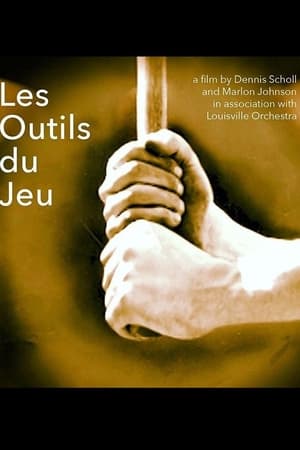 0.0
0.0Les Outils du Jeu(en)
This non-narrative short film examines one of the great American icons: the Louisville Slugger baseball bat. The film was conceived by its co-directors, Marlon Johnson and Dennis Scholl, along with the Louisville Orchestra's conductor, Teddy Abrams, to be screened set to a live performance by the orchestra of Claude Debussy's "Jeux".
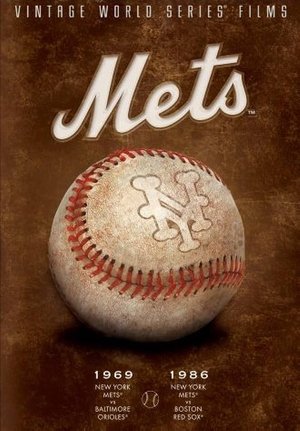 0.0
0.0Vintage World Series Films: New York Mets(en)
The World Series champion Mets of 1969 and 1986 were embraced by fans for their pitching, personalities, and perseverance. In 1969, the world was mesmerized by man's first steps on the moon. The world of baseball was equally transfixed by the Mets. New York relied on pitching from Tom Seaver and Jerry Koosman, and the hitting of Tommie Agee and Cleon Jones to register the Club's first 100-win season. It took the 1986 Mets two games to recover from a grueling NLCS, and then the fiery Lenny Dykstra led the charge. With two road victories pushing the Fall Classic back to Shea Stadium, the stage was set for Game Six--and arguably the most remarkable comeback in baseball history...
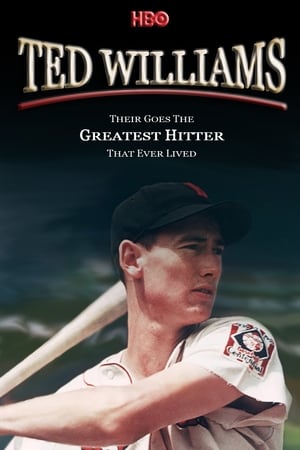 0.0
0.0Ted Williams(en)
Born in 1918 in San Diego, Williams was a latchkey child from a broken home, raised by a mother more dedicated to the Salvation Army than to her two sons, and by a father who spent more time away from home than in it. Williams found salvation by doing the one thing he loved most: hitting baseballs. In his rookie season with the Red Sox, where he would spend his entire career as a player, Williams batted .327, socked 31 homers and led the league with 145 RBI. Over the next 21 years, despite losing five seasons of his prime to active service as a U.S. Marine Corps pilot, Williams hit 521 home runs, twice captured the Triple Crown, and became the oldest man ever to win a batting title. He finished his career with a .344 lifetime batting average, was the last man to hit over .400 in a full season, batting .406 in 1941, and was a first-ballot inductee into the Baseball Hall of Fame.
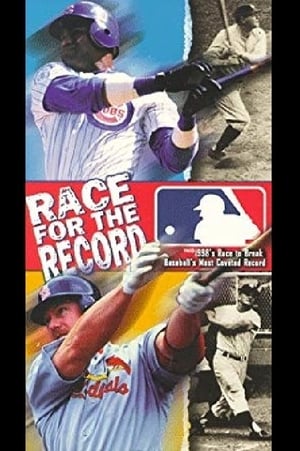 0.0
0.0Race for the Record(en)
Babe Ruth set a record in 1927 by hitting 60 home runs in one season. 34 years later, Roger Maris broke that record. Another 37 years passed before that record was broken by Mark McGwire. Five days after McGwire's feat, Sammy Sosa broke the brand new record. And the race was on! Fans watched breathlessly as the record passed between the two men and time left in the season dwindled. Relive it all, from Ruth, to Maris, to the final days of the 1998 Sosa/McGwire slug-fest.
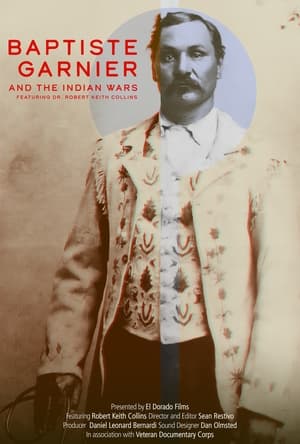 0.0
0.0Baptiste Garnier and the Indian Wars(en)
In 1866, as the U.S. modernized its military, the Army Reorganization Act allowed Native Americans to enlist as scouts, heralding a profound era of change. Amidst this backdrop, the film unfolds the story of Baptiste Garnier, a half Oglala Sioux, half French-Canadian scout known as "Little Bat." Torn between his Sioux roots and his U.S. allegiances, he navigated the brutal Indian wars and was at the heart of pivotal battles, including the tragic Wounded Knee massacre. Although perceived as a bridge between two worlds, Baptiste's duality often led him to make heartbreaking decisions. By the time of his untimely death in 1900, shot by a white bartender over a bar tab dispute, he epitomized the complex weave of identity and legacy, raising questions about the cost of serving two peoples in a divided America.
The 1993 World Series: Toronto Blue Jays vs Philadelphia Phillies(en)
The Toronto Blue Jays — the defending champions — sleek, corporate, efficient — featuring an offensive arsenal that hit a collective 0.311 in the six-game series. The Philadelphia Phillies — a last-to-first success story — with their long hair, beards, and blue-collar work ethic — a softball team in pinstripes. This was a World Series that won't soon be forgotten. A six-game slugfest that sent pitchers scurrying to the showers. The heroes were named Dykstra, Molitor, Schilling and Alomar. The games were unforgettable. The sheer drama of Game Four — with its runs, hits, and duration — all records. The surgical precision of Curt Schilling's shutout in Game Five. And Joe Carter's incredible three-run blast to win Game Six — just the second time in history a home run has ended a World Series.
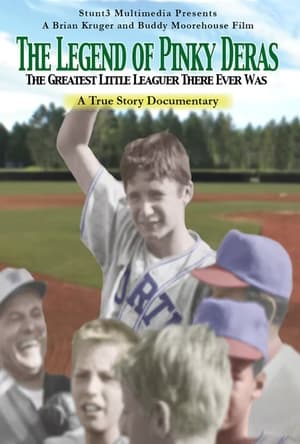 0.0
0.0The Legend of Pinky Deras: The Greatest Little-Leaguer There Ever Was(en)
Since Little League Baseball was founded in 1939, about 40 million kids have played the sport. The list includes future Hall of Famers like Carl Yastrzemski, Tom Seaver and Nolan Ryan, and hundreds of other future Major Leaguers. But of all the kids who ever played Little League, the best of the best was a boy you’ve probably never heard of: Art “Pinky” Deras. In the summer of 1959, he led the team from Hamtramck, Mich., to the Little League World Series title, and in the process, he put together a Little League season the likes of which we might never see again. His amazing story comes to life in “The Legend of Pinky Deras: The Greatest Little-Leaguer There Ever Was,” a new film from Blue Hammer Films. Pinky received a ton of national publicity back in 1959, but then he fell off the map. In the half-century since he lit the Little League world on fire, there have been no films about him, no magazine stories, not even a single newspaper article.
 0.0
0.0MLB Network Presents: One of a Kind(en)
One of a Kind uncovers how Maddux was able to achieve one of baseball’s most-decorated and consistently successful careers, serving as the only pitcher in history to amass 300 wins, 3,000 strikeouts and fewer than 1,000 walks.
 9.0
9.0One of a Kind: Greg Maddux(en)
Star-studded group featuring Barry Bonds, Randy Johnson, Chipper Jones, Tom Glavine and John Smoltz to bring viewers inside Maddux’s legendary career;
 0.0
0.0Finding Home: Journey to MLB(en)
Chronicling Latin baseball players in the minor leagues as they experience the ups and downs of pursuing the dream of playing in the Major Leagues.
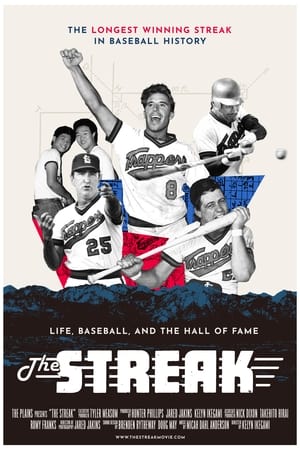 0.0
0.0The Streak(en)
In 1987, a team of outsiders attempt to break a hallowed baseball record in a desperate bid for fame, fortune, and careers in the major leagues. Even if they succeed, no athlete can play forever — and what comes after the death of a dream?
 0.0
0.0100 Years of Wrigley Field(en)
100 Years of Wrigley Field celebrates a century of the greatest moments and best personalities of the ballpark on Chicago's North Side.
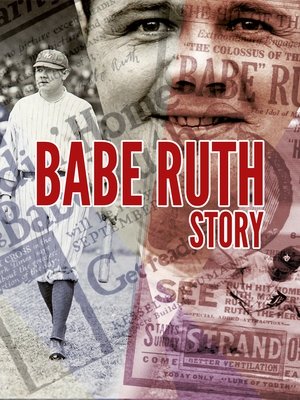 0.0
0.0Babe Ruth Story: That Ever Livin' Babe(en)
Documentary on the life and career of Babe Ruth.
 0.0
0.0Ruiz(en)
At the core of these memories is Kcey, a spirited young woman of Puerto Rican and African American heritage. Her infectious spirit and uniquely endearing laugh became her signature, filling every room with infectious energy and joy. As a child, Kcey's spirited antics foreshadowed her future strength; she later emerged as a formidable member of the Air Force. Recollections from her mother, father, sister, childhood friend, and a battle buddy capture the essence of Kcey, from her infectious laughter to her cherished moments under the Afghan sunsets. Each memory serves as a testament to a life lived passionately. However, heartbreak strikes when, amid war, a plane crashes, claiming Kcey's life. As they grapple with this devastating loss, her loved ones oscillate between despair and denial, occasionally seeking refuge in work or the numbing embrace of alcohol. Yet, as they collectively mourn, they discover solace in their shared memories of Kcey's radiant spirit.
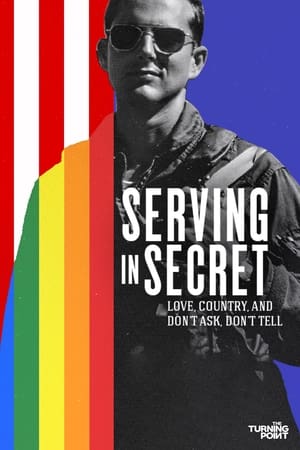 0.0
0.0Serving in Secret: Love, Country, and Don't Ask, Don't Tell(en)
Tracing the U.S. military's long history of discrimination against the gay community and one couple's personal journey for acceptance.
 6.0
6.02005 Houston Astros: The Championship Season(en)
The Houston Astros overcame the worst start in franchise history to win the National League.
 5.8
5.8The Last Season(en)
In search of the lucrative matsutake mushroom, two former soldiers discover the means to gradually heal their wounds of war. Roger, a self-described 'fall-down drunk' and sniper in Vietnam, and Kouy, a Cambodian refugee who fought the Khmer Rouge, bonded in the bustling tent-city known as Mushroom Camp, which pops up each autumn in the Oregon woods. Their friendship became an adoptive family; according to a Cambodian custom, if you lose your family like Kouy, you must rebuilt it anew. Now, however, this new family could be lost. Roger's health is declining and trauma flashbacks rack his mind; Kouy gently aids his family before the snow falls and the hunting season ends, signaling his time to leave.
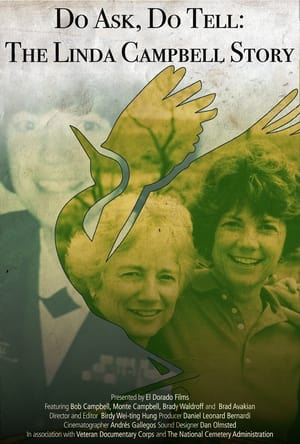 0.0
0.0Do Ask, Do Tell: The Linda Campbell Story(en)
Set against the backdrop of the repeal of the "Don't Ask, Don't Tell" policy, the film chronicles the journey of Lt. Col. Linda Campbell, an Air Force veteran who grappled with hiding her true self during her service tenure. While the national policy shift towards LGBTQ+ rights marks a progressive era, Linda's personal story serves as a powerful testament to the individual battles fought in the shadows of such policies. Subjected to suspicion, prejudice, and threats from her comrades due to her perceived homosexuality, Linda's resilience remain undeterred. Her unwavering love and commitment to her partner, Nancy Lynchild, culminate in a poignant milestone: their eternal rest together in Willamette National Cemetery. Intertwined with this narrative is the account of Linda's brother, Bob Campbell, who delves into their family's conservative roots, Linda's tumultuous coming out, and the eventual familial reconciliation that showcases the transformative power of love and understanding.
 5.9
5.9Shohei Ohtani: Beyond the Dream(en)
This film is an intimate and moving cinematic record of Shohei Ohtani's journey to MLB stardom. A faithful portrait of his talent development and battle with injuries, and his unique mindset to become a superstar ballplayer breaking all the barriers of race, language, discipline, and culture.